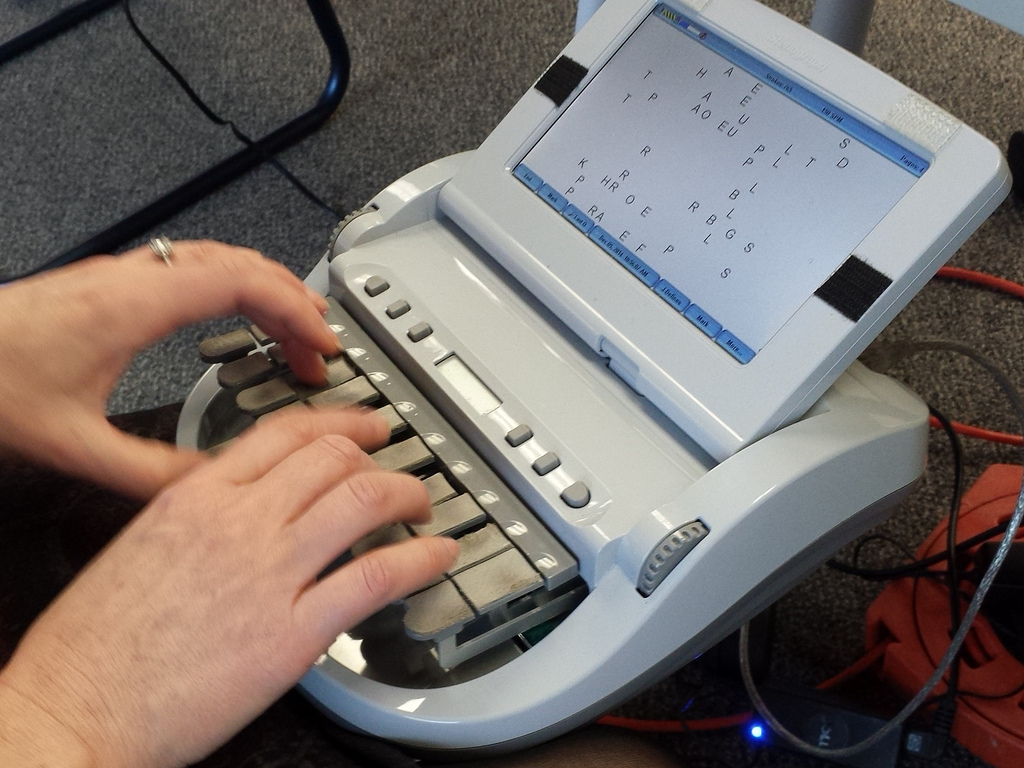Technology Drives Changes In The Court Reporting Industry

Things are changing in the court reporting industry, and CourtScribes offers services that will help clients keep up with the major changes driven by budget cuts, court reporter shortages and new technology. Although some proceedings in Florida still call for the presence of a traditional stenographer, the profession is being driven by technological change. Courts can […]
Court Reporter Shortage Hits Home In South Carolina

All around the country, there’s a court reporter shortage. In South Carolina, that shortage has become particularly acute. The Charleston Post and Courier reports that more than a quarter of that state’s court reporter positions are vacant. Those vacancies are resulting in delays and last-minute cancellations of proceedings across the state, the newspaper reports. According […]
From South To North, Court Reporters Are In Demand

Just about everywhere, demand for court reporters is growing thanks to a perfect storm of rising demand and retirements in the profession. Check out this article from the Duluth News Tribune if you have any doubts: Court reporters, also known as stenographers, use a 6-pound stenotype machine, which features 22 keys, to capture, verbatim, the […]
Want To Be A Court Reporter? Here’s How

If you want to follow a strong career path and become a court reporter, there are some practical steps you can take. Here are a few of them. Pick an area of specialization According to CourtReporter EDU.org, there are multiple paths you can take in this versatile career. “Although all court reporter programs have the […]
Texas Group Looks To Educate Next Generation Of Court Reporters

With a shortage looming, a group of Texas court reporters has taken the unusual step of raising money to educate the next generation of court reporters. The Texas Deposition Reporters Association has raised $11,000 to help fund Project Steno, which provides educational opportunities for stenographers. According to a press release: There is a very critical […]
Court Reporting Profession Evolves With Technology, Budget Changes
The court reporting industry is in the midst of major changes, as budget cuts combine with technology to drive different ways of doing things. According to The Jacksonville Daily Record: Legal stenography has changed from long rolls of paper to digital transcription. Facing budget cuts, courts can no longer afford to have a stenographer in […]
Miami Court Reporters Lead Changes In A Growing Profession

Court reporting doesn’t get the love it deserves as a profession. As the Miami court reporters of CourtScribes know, court reporting is not just growing, but changing thanks to innovation. According to Planet Depos, “It’s obvious we need talented doctors, dentists, and teachers. But there are other indispensable professionals who have amazing mental processing skills […]
How The Miami Court Reporters At CourtScribes Embrace Technology That Helps Solve Shortages

In some states, there’s a shortage of a key ingredient in the smooth running of courthouses. That kind of shortage points out one of the advantages inherent in the technology embrace by the Miami court reporters of CourtScribes. One of the states facing court reporter shortages is South Carolina. According to the Charleston Post & […]
Miami Court Reporters CourtScribes Helps Address Looming Shortages

Shortages of court reporters are hitting home from Pennsylvania to Texas and Missouri—evidence that the type of creative solutions practiced by CourtScribes’ Miami court reporters are more necessary than ever. In Texas, the number of qualified court reporters has declined 20 percent since 2005, says David Slayton of the Texas Office of Court Administration. “We […]
If The Miami Court Reporters Of CourtScribes Can Innovate, So Can Lawyers

Innovation is a key to improving the legal system, something the Miami court reporters of CourtScribes have taken to heart and other players are learning. Ivy Grey writes in Evolve The Law that lawyers need to embrace innovation themselves: Too many lawyers with great ideas that could improve legal practice are discouraged from even trying […]
